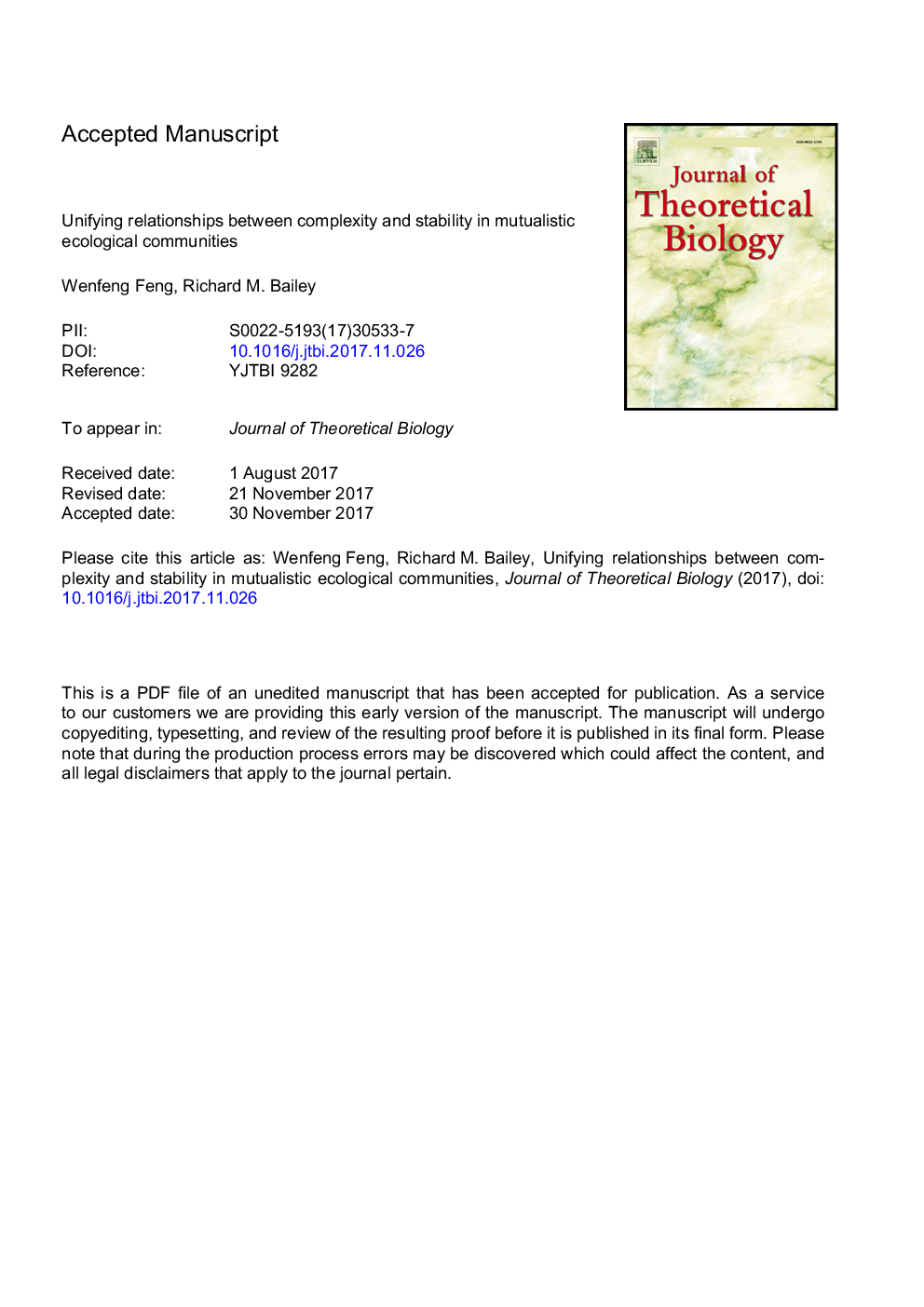| Article ID | Journal | Published Year | Pages | File Type |
|---|---|---|---|---|
| 8876867 | Journal of Theoretical Biology | 2018 | 74 Pages |
Abstract
Conserving ecosystem function and associated services requires deep understanding of the underlying basis of system stability. While the study of ecological dynamics is a mature and diverse field, the lack of a general model that predicts a broad range of theoretical and empirical observations has allowed unresolved contradictions to persist. Here we provide a general model of mutualistic ecological interactions between two groups and show for the first time how the conditions for bi-stability, the nature of critical transitions, and identifiable leading indicators in time-series can be derived from the basic parameters describing the underlying ecological interactions. Strong mutualism and nonlinearity in handling-time are found to be necessary conditions for the occurrence of critical transitions. We use the model to resolve open questions concerning the effects of heterogeneity in inter-species interactions on both resilience and abundance, and discuss these in terms of potential trade-offs in real systems. This framework provides a basis for rich investigations of ecological system dynamics, and may be generalizable across many ecological contexts.
Related Topics
Life Sciences
Agricultural and Biological Sciences
Agricultural and Biological Sciences (General)
Authors
Wenfeng Feng, Richard M. Bailey,
